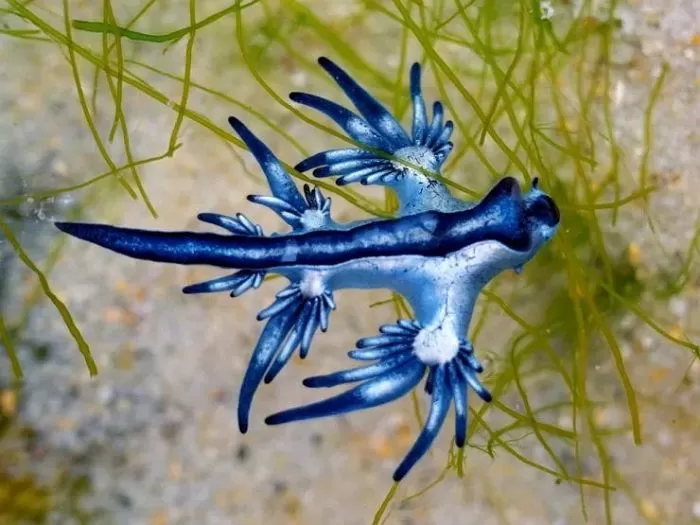Phuket’s picturesque beaches are hosting an unexpected, and potentially dangerous, visitor. Local authorities are urging tourists to avoid contact with the stunning, yet venomous, blue sea slug, affectionately known as the Blue Dragon.
Don’t be fooled by its beautiful, shimmering appearance; this tiny sea creature packs a punch that can cause severe pain.

According to a report from The Bangkok Post on Friday, the Northern Andaman Sea Coastal Resource Research Center has issued an urgent warning about these striking yet dangerous creatures.
On Thursday afternoon, beachgoers at Karon Beach were taken by surprise when powerful waves washed ashore several of these blue beauties.
Blue Dragon 101: What You Need to Know
Marine experts quickly responded to investigate, confirming that the tiny creatures were indeed blue sea slugs, measuring just 0.5 cm in size.
Here’s the twist: These little guys don’t produce their venom. Instead, they’re nature’s recyclers, feeding on toxic marine critters and storing the poison for later use.
What’s on their menu? The venomous blue button jellyfish and by-the-wind sailors, both of which have been spotted in Phuket’s waters.
If you’re unlucky enough to come into contact with one, expect a sting similar to that of a jellyfish, complete with a burning, sharp pain.
Brace yourself: the intense, needle-like pain could last for up to three hours, depending on the exposure.
Accidentally touched one? Don’t panic! Treat it just like a jellyfish sting, rinse the area with vinegar. But keep in mind: even after these Blue Dragons have washed up and are no longer alive, they can still sting, so avoid touching any you spot on the sand.
Although these creatures are typically found in the Atlantic, Pacific, and Indian Oceans, their range is expanding. Recent sightings have been reported along the eastern and southern coasts of South Africa, as well as in European waters.












Comments0